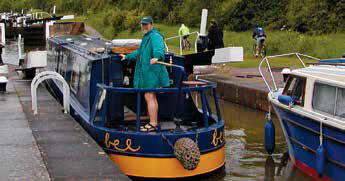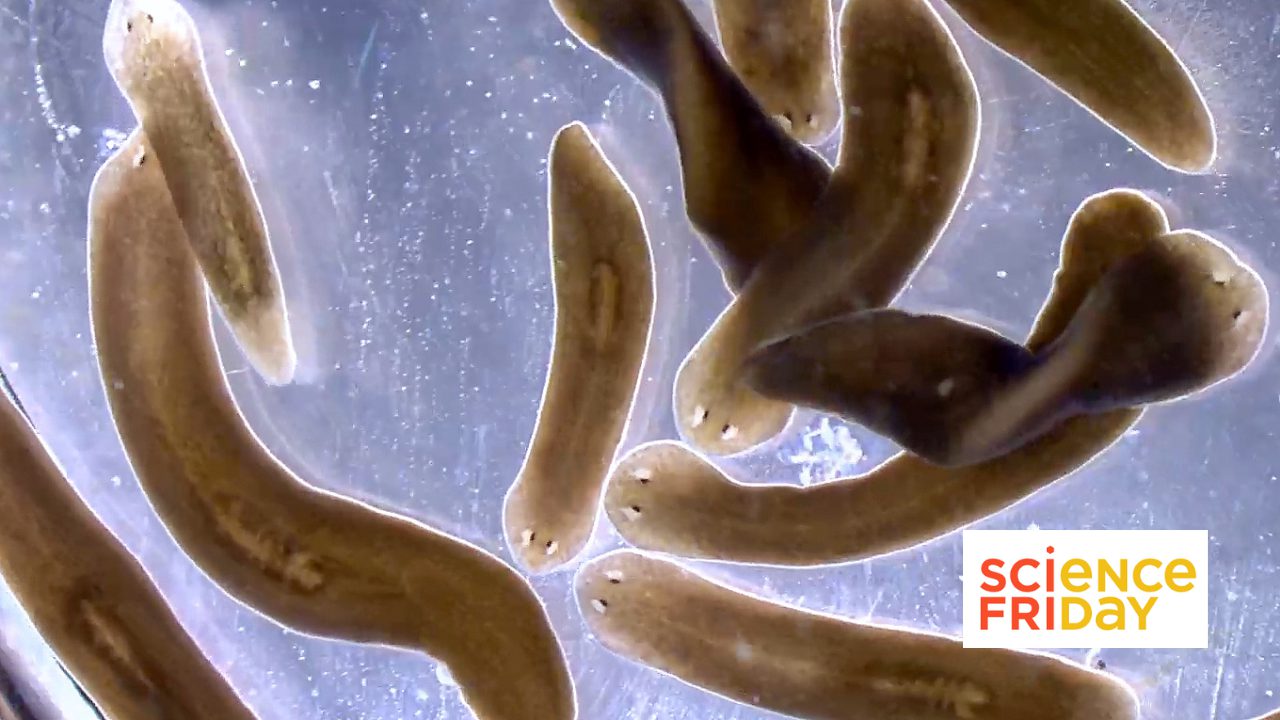In The News

07 January 2026
Investigator Kamena Kostova, named ‘Cell Scientist to Watch’
From the Journal of Cell Science, Investigator Kamena Kostova named a 'Cell Scientist to Watch'
Read Article
Robb Krumlauf, PhD, took a career detour into chemical engineering before he finally found his calling as a biologist. During a postdoc at the Fox Chase Institute for Cancer Research in Philadelphia he did research on emerging techniques of inserting genes into the mouse germline to create “transgenic mice,” which would help revolutionize mouse genetics and facilitate the use of mice as a model to understand human development and disease.
In his first faculty job, Krumlauf immersed himself in vertebrate developmental biology at the field’s epicenter, England’s National Institute for Medical Research in the Mill Hill region of London. His studies there were among the earliest to show that regulatory genes defining an organism’s basic body plan were conserved structurally and functionally in the genomes of vertebrates and insects.
Initially, Krumlauf had planned only a short sojourn in the UK, but the mix of groundbreaking research and collegiality kept him at Mill Hill for sixteen years. During his last decade there he served as head of the Division of Developmental Neurobiology.
Lured by Jim and Virginia Stowers’ vision for a new kind of research institute, located in Kansas City, Krumlauf returned to the US with a clear sense of the importance of interdisciplinary research and collegiality and a love of canal boating. He became the first senior faculty member of the Stowers Institute, when he took on the role of scientific director in 2000.
What do you consider the most important aspect of your research?
Our discovery that Hox genes, which control formation of the basic body plan, are essentially the same in mice and flies had a big impact on thinking in the field: it helped people realize the value of studying model organisms and showed that we don’t have to redo every experiment or restudy all basic processes in every species. We can study programmed cell death in worms and it immediately translates to other species. Now, everybody takes it for granted that there is a common genetic tool kit and that all organisms have surprisingly similar numbers of genes. The main difference may be in how they deploy those genes. This means we can effectively study human disease processes in model organisms when they are not tractable or can’t be studied for ethical reasons in humans. It really drives home the power and value of basic research.
What did it feel like to be part of what you once described as the heyday of developmental biology?
It felt wonderful and exciting. For one, we began to realize the importance of what technology could do for biology. I always thought science was progressing in modest increments and eventually they would all add up to a new insight. All of a sudden, new technologies allowed us to ask really big questions and we could ask them now. As a result, a small group of people, who interacted with each other and followed creative and innovative ideas, made Mill Hill one of the leading if not the leading institute in mammalian developmental biology. I was proud to be associated with a group making so many cool discoveries. I had so much fun and so much joy that I never thought of leaving.
What convinced you to leave for an unknown future?
I was at one of the best places in the world to do science and it was, in part, my experience there that made me think that Stowers could succeed. Mill Hill had demonstrated that it was possible for a small institute to become an outstanding place if you were focused and you had really good people. I was very attracted by Jim and Virginia’s commitment to excellence and their vision of an institute that encouraged interdisciplinary science and was willing to fund the necessary expertise and cutting-edge technology that would help people do that.
What was your biggest concern?
I wanted Jim and Virginia’s vision to be successful and I mostly worried whether I could do what they wanted me to do. I had been focused primarily on my own research for a long time, but came to think this would be a way of giving back to honor people who had helped me so much during my career in science. I believed that this model for an institute could really work and would be a great way to facilitate outstanding science for other people. If I could help make this work, that might be a better legacy than any science that I contributed. I am proud of what we have done.
You have shaped the Stowers Institute’s scientific direction since its inception. What are your guiding principles?
From day one, Bill Neaves [the founding president] and I were aligned in our commitment to excellence. We wanted to hire the best people we could find at all levels. Since we did not have a ready-made culture like MIT or Harvard we had to carefully craft our own. Hence, we also put a lot of emphasis on collegiality, since interdisciplinary research requires people to work well together to create the necessary synergy to do pioneering work. Science and discovery should be fun, right? Our view was that if you had a collection of outstanding people who ask really interesting questions, like each other and push the envelope, you would have a powerful engine producing important discoveries.
Where would you like to see the institute down the road?
I would like to see the institute as a key member of the elite group of institutions that drive cutting-edge life science research. I hope that we will have had a positive impact on science not only through significant contributions and discoveries made by researchers here but also through the people we train who will become future world leaders in science and go on to make major contributions by pursuing careers in science at other institutions. In that way, we will have capitalized on this amazing opportunity by giving not just to the city, the region and country but to the world.
How did you first become interested in science?
I came to biology late. When I was in high school the space race was in full swing and we were geared toward science and engineering, so I ended up in engineering school. I didn’t take my first biology class until after I graduated from university and was working as an engineer. As I began to see the wonders of biology, I just fell in love with it and instantly knew I had to do this. I gave up my engineering career—which drove my parents crazy—and went back to school to get a PhD in developmental biology.
What’s the best part of being a scientist?
Every day is different and you never know what you are going to learn. I love doing experiments to discover new things. It is so cool. My work as an engineer, however, was dreadfully predictable. Now I understand the frustration I felt at the time—I was not allowed to follow my natural curiosity and experience the joy of making new discoveries.
What would you be doing if you could not be a scientist?
If I could not do science for a living, I would have loved to be an artist but I just have no artistic talent to speak of. My father tells me that he had to convince me not to major in art history. I also love to cook. I used to dream about owning a restaurant and a wine store, but I realize now that it is probably more fun to enjoy them than to actually run one.
If you had a month off, where everything stops—no worrying about deadlines or administrative duties—what would you do with your time?

While in England, Robb Krumlauf grew fond of canal-boating.
I would head straight to the lab and do some experiments. The joy of having uninterrupted time to think while I am watching and doing experiments would be like a science holiday for me. It would also be fun to take a sabbatical in a different lab to learn new technologies. If the lab was off limits, I would either take a really long canal boat trip going through the English countryside or I would just go off and climb in the mountains for a month.
What’s your career advice for young people trying to figure out whether science is for them?
Follow your passion. I could have stayed on as an engineer and probably would have been successful. I really derived no joy from that job and it was frustrating. I believe you need to explore and be bold enough to try different things. Success at whatever you do usually requires hard work, so finding something you are good at and enjoy makes the work more rewarding.
In The News

07 January 2026
From the Journal of Cell Science, Investigator Kamena Kostova named a 'Cell Scientist to Watch'
Read Article
#Stowers25: Celebrating 25 Years
06 January 2026
Alejandro Sánchez Alvarado, Ph.D., reflects on a year of discovery, gratitude, and the community that helps support our mission.
Read Article
In The News

01 January 2026
From Science Friday, President and CSO Alejandro Sánchez Alvarado talks about the science of regeneration and the biology lessons we can carry into the new year.
Read Article
